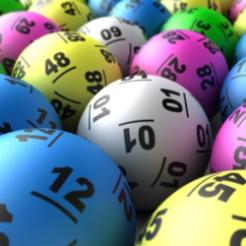The Health Lottery has raised £8m since launching in October but its claims to have expanded the lottery market as a whole have been disputed by the National Lottery.
Martin Hall, chief executive of the Health Lottery, the external lottery manager which works on behalf of the 51 society lotteries, told a press conference in London yesterday that the organisation was pleased with the start the newcomer had made. He added that concerns that it would divert money from the National Lottery have thus far proven unfounded.
“We’ve got confirmation through data that this is new money,” he said. “We have only just begun.”
The Health Lottery believes it is on track to raise £50m for charities within its first year, Hall said, adding that the £8m raised in the first quarter put it on course. "We will make sure the original [fundraising] objective is the objective we hit," he said.
The organisation said that the launch of the Health Lottery in October coincided with the highest National Lottery sales figures of the year. “Lottery Commission figures also show that from October to December 2011 the sale of National Lottery tickets increased 8 per cent year-on-year,” said the director of the 51 community interest companies behind the lotteries, Jeremy Muller, in the statement released at the press conference.
'Not correct at all'
These claims, however, were classed as “simply not correct at all” by Camelot, which runs the National Lottery. Camelot has not yet released sales figures for December 2011. Muller claimed that the launch of the Health Lottery on 8 October coincided with the highest sales for the National Lottery that same weekend, but a Camelot spokesman said that this too was not correct. There were increased sales that weekend, but Camelot said this was likely to result of a £101m EuroMillions rollover jackpot which was drawn on 7 October. Such jackpots traditionally result in increased sales, the spokesman said.
“It’s far too short term to come up with an analysis [of the impact of the Health Lottery on National Lottery sales],” said the spokesman.
Camelot also corrected another assertion made by the Health Lottery; that the National Lottery distributed 27p in the pound to charities. The figures, available on the DCMS website, show that 28.59p in the pound were given to good causes in 2010/2011.
The People’s Health Trust, which distributes the money raised by the Lottery, said that £4m had already been allocated to 121 charities – although as civilsociety.co.uk reported last month, the majority of these funds have been shared between ten national charity partners which work as federated or regional charities in the different regions covered by the society lotteries. More than 2,000 “smaller charities” have approached the People’s Health Trust for funding, the organisation said.
Pilot trials of future funding
Prof Jennie Popay, chair of the People’s Health Trust, reconfirmed that the Trust will begin working with the regional groups to develop future funding programmes. She said that the organisation would be approaching all 51 groups “in a thin way” and then work to develop a stronger idea of how to tackle health inequality in the different areas. Pilots will take place in five to ten areas to develop funding programmes.
“It is a challenge. It will take us time, but we’re up to it,” said Prof Popay.









